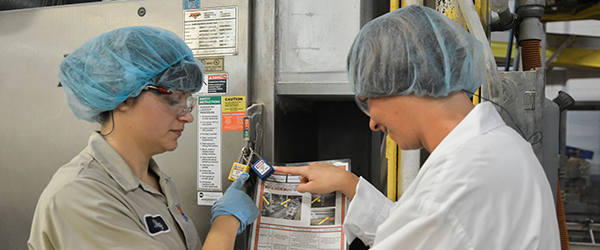Internal Auditing: What You Need to Know

“No one has ever asked for that document!” is a comment I have heard far too many times over the past decade. There are many reasons for facilities not to be prepared for internal audits, and subsequently being forced to correct non-conformances that may lead to more serious issues such as recalls or legal implications. Here are several common issues I find when examining internal audit programs, with suggestions on how to avoid them:
Lack of commitment
Many facilities underestimate the importance of adequately scheduled and managed internal audits. I always make our consulting clients aware that if internal audits are conducted as intended, it will prepare the site for any type of external audit, whether it is a GFSI, customer, or regulatory audit. The more you scrutinize your own systems, the better you will perform. This sometimes is easier said than done, but developing and implementing an adequate internal schedule is a must. One of the worst things a site can do is simply go through the motions of conducting an internal audit a few weeks before an actual audit.
Inadequately Trained Personnel
No one knows the systems of a processing facility better that its employees, so enabling and empowering employees to actively participate and sustain the Food Safety and Quality Management systems (FSQMS) is key. Internal auditing procedures and relevant technical aspects must be part of your training program for all team members. Actively engaged employees can contribute significantly to the continuous improvement of a site’s FSQMS, so integrating a multi-disciplinary internal audit team must be considered.
Lack of Follow-up
Establishing deadlines for correcting any issues found during internal audits is one thing, but following up to ensure 1) that it was corrected, 2) that the correction was effective, and 3) that the issue is not a recurring one are three essential steps when dealing with non-conformities. Many times, sites struggle with this aspect of internal audits. Fortunately, there are tools for managing FSQMS that each include a module for corrective and preventive action (CAPA), such as SafetyChain, Safe Food 360, and Trace Gains, to name a few.
Insufficient Understanding of Standards/Regulations
“I was not aware that it was a GFSI requirement,” or “I don’t know that regulation,” are also comments I’ve often heard when conducting GFSI audits. It is the responsibility of the processing site to be aware of all requirements or regulations applicable to the site. Sampling of the systems is a common practice during GFSI and regulatory audits. Just because an auditor or investigator did not request a document for a certain program or product during a visit does not mean that it is not required. All sites must have current copies of all relevant standards and regulations. These should be used to develop checklists for guidance while conducting internal audits.
Conducting internal audits as intended by properly trained team members must become a common practice for all processing facilities. Empowered frontline employees are in the best position to defend their FSQMS against any auditor or investigator, since they are the ones that live and breathe these food safety programs daily.





